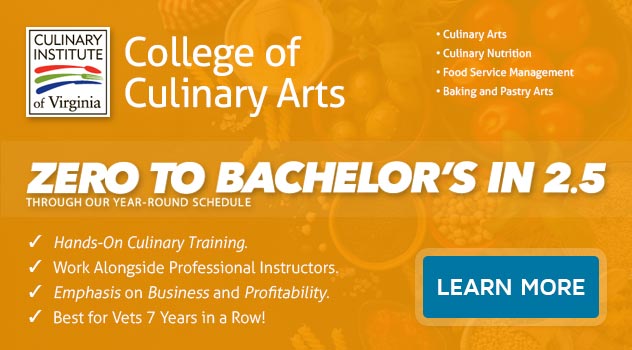Is Becoming a Chef Easy: What Will I Need to Know?
If you love to cook, you’ve probably pictured yourself creating recipes and meals that people come from miles around to enjoy. Being a professional chef is an exciting career path that could expose you to many different experiences- ranging from cooking techniques to financial management. As the culinary arts industry continues to grow, there’s rising demand for chefs who can manage restaurants, hotels, cruise ships, and corporate dining services. There are about 30,000 culinary graduates each year, which is not enough to fill the numerous vacant kitchen positions around the country.
Becoming a chef takes more than just experience in the kitchen. While apprenticeship is a critical part of the profession, chefs in today’s world also need to learn presentation techniques, basic accounting and finance, and nutrition. If you enjoy combining multiple aspects of commercial food preparation, a career in culinary arts may be a good fit for you.
What you can Expect as a Chef?
The field of culinary arts continues to grow daily. In fact, the Bureau of Labor Statistics estimates the demand for chefs and head cooks will expand by 10% by 2026. Growth in this field is attributed to a rising population in urban areas, as well as the strong tradition that people have of eating out as a social activity.
As technology continues to connect different corners of the globe, cuisine has become international. French and Italian dishes are common in the U.S., while classic burgers and club sandwiches are being consumed far away from U.S borders. This means that there’s a growing demand for chefs who can prepare many different types of dishes.
Whether you specialize in a specific cuisine or you’re familiar with a range of cultural dishes, a career in culinary arts will expose you to many different opportunities. Chefs are hands-on professionals who combine apprenticeship, experience, and formal education to create tasty dishes that customers enjoy.
Skills that Chefs Possess
If you love to cook, you may be wondering what it takes to become a professional chef. Chefs wear many different hats. They understand cooking techniques and nutritional information, while also adhering to sanitation laws and seeing to the general safety of each meal prepared.
Chefs are leaders who supervise a team of cooks working towards a common goal. So which skills should you possess to be successful within this field?
- Attention to detail: For you to prepare dishes that people will eat, you need to pay attention to what customers enjoy. Adding too much salt may ruin a dish, while baking chicken for just a few extra minutes may change its texture. Chefs are very meticulous with how they prepare their meals. This attention to detail also helps ensure a sanitary environment that falls in line with health regulations.
- Organization and time management: Being properly organized (and emphasizing the same qualities to your team) is another critical skill that a chef should have. Running a restaurant, corporate diner, or school canteen all require proper organization during every meal prep.
- Leadership: Chefs and head cooks are also leaders within the workplace. They delegate responsibilities, monitor performance, and set goals for people to follow.
- Resilience: Getting that perfect recipe can be a long trial-and-error process. This is why you need to be resilient in the face of difficulty. Be prepared to handle challenges when launching a new menu or meeting financial goals.
Duties and Responsibilities
Chefs carry out many different tasks daily. You may begin the day by taking food temperatures and finish off your shift by preparing sales reports. In-between, you may set up menus, cook dishes, and delegate duties to employees.
Some of the most common duties and responsibilities that chefs carry out include:
- Studying new recipes that can be introduced to the premises
- Prepping samples for cooking
- Supervising cooks to ensure meals are completed as desired
- Handling special requests from customers (gluten-free, no salt, no dairy, etc.)
- Placing orders for supplies when stock is low
- Ensuring compliance in food prep activity
Why is a Formal Education Important?
While you can become a very good cook by practicing and learning from others, a formal education is what sets professional chefs apart from other kitchen personnel. Culinary arts courses traditionally begin by teaching classic cooking techniques. After which, students can expand their knowledge in many different niches. Classic techniques include baking fundamentals, kitchen organization, meat and poultry fabrication, and applied nutrition.
Culinary arts programs also typically cover menu development, presentation techniques, and ingredient selection. Having knowledge of these areas should allow you to use your creativity when preparing final meals for your workplace.
Career Opportunities
Chefs work in many different establishments across the country. You may choose to be the lead chef in a hotel, or to manage specific dishes within a chain of restaurants. In fact, most places that sell food (for eat-in purposes) will have a chef who manages the menu and customer requests.
Are You Ready to Start Your Culinary Journey Today?
At ECPI University, we offer an accelerated Associate of Applied Science Degree in Culinary Arts. Our robust year-round curriculum strives to expose learners to many different aspects of the culinary sector before they choose to begin their careers. If you’re ready to get started, contact one of our friendly admissions counselors today.
It could be the Best Decision You Ever Make!
DISCLAIMER – ECPI University makes no claim, warranty, or guarantee as to actual employability or earning potential to current, past or future students or graduates of any educational program we offer. The ECPI University website is published for informational purposes only. Every effort is made to ensure the accuracy of information contained on the ECPI.edu domain; however, no warranty of accuracy is made. No contractual rights, either expressed or implied, are created by its content.
For more information about ECPI University or any of our programs click here: http://www.ecpi.edu/.




